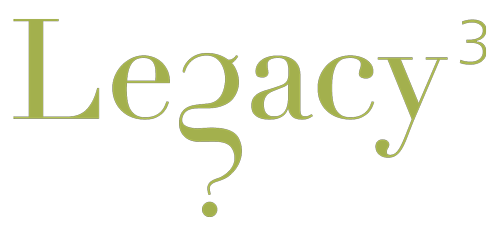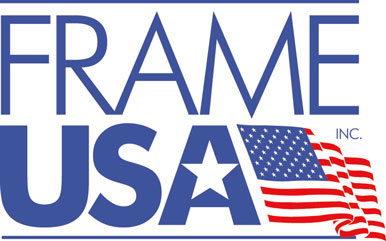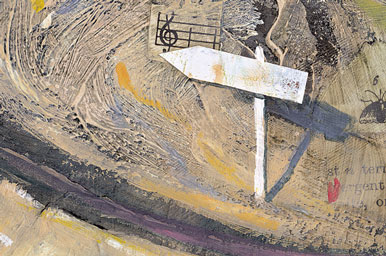
2021 LISTEN TO A LIFE CONTEST
CONGRATULATIONS TO THE
GRAND PRIZE TIMELESS WINNER…
Grace Rzepiejewski, 16
and her grandmother Karen Rzepiejewski, 69
Grace is a grade 11 student at Arrowhead Union High School in Hartland, WI. She was encouraged to enter the Listen to a Life Story Contest by her English teacher, Terri Carnell.
Grace says the contest has been an "eye-opening experience. It was really nice to get to know my grandmother more." Grace started with an organized list of questions, but as she interviewed her grandmother the conversation just flowed from questions that popped into her head.
Her grandmother literally used to run home from school, yearning for her family to be around. She didn't want to be alone. Karen now says it's the happiest time of her life with her big family.
Here is Grace's winning entry…
A JOURNEY HOME
A small, lanky, 6-year-old girl, her hair straight and brown, held back by a feeble headband, sits in the chaos of a mess hall. Kids of all ages, heights, and weights are united by one school uniform. In a crowd where no one stands out, that small girl, Karen, couldn't feel more alone.
As sounds of fun and laughter around her grow, so does her ache for home. A twisting feeling builds in her stomach as she yearns to be home. Without a second thought, she slips into the shadows of the children playing. Dodging and weaving through the mass, she makes her way to a small back door. With a final watchful glance, she slips out unnoticed.
Confused and lost, her internal compass points home. She sets off, walking through the dangerous streets of South Milwaukee. The panic inside her swells as the buildings become less and less familiar. Her instincts fail her, and she begins to cry. Her once cautious steps turn into a frantic sprint. The buildings blur as she dashes through streets, tears flowing down her cheeks.
Reaching the doorstep to her quaint, white house, a safe feeling rushes through her. Opening the door, she looks for any familiar face. To her demise, the house sits empty. Grief-stricken, she must wait for her family to come home.
Sixty years later, she sits on a pier, a small baby curled in her arms, watching as her grandkids play in the lake. Her grown children sit not too far away onshore, talking. A smile emerges from her lips as the baby boy grasps her hand.
It may have been a long journey, but she found her home.
7 LEGACY AWARDS
Bella Genereau, 16, and grandmother Marlys Buntje, 80, Minnesota
A WOMAN IN A MAN'S WORLD
Born the eighth of September, 1940, on a small farm near Artichoke Lake in Minnesota, my grandma Marlys Janieve Anderson was born into the world of men. Growing up, she had no exposure to the world outside of her small town. The one and only world she knew consisted of a one room schoolhouse, a predominantly white community, and a life where being a woman meant bowing down at the feet of males who believed they were kings. My grandma never bowed.
Throughout her entire life, men tried to stop her – but she was stronger than they were. Being raised in a family where her mother was the keeper of the home, she knew from a young age that she did not want her life to end up that way.
Marriage eventually found my grandma, but it was one of struggle. Abuse, lies, and broken promises were the foundation of it all. With old ideas that he was boss over my grandmother, her husband believed he could do whatever he wanted, and she would do as he wished without hesitation.
"I'm not built that way," she told me. And she left him.
My grandma knew every ounce of her worth, and she was never willing to give any of that up at the command of a man. She had a successful job, beautiful kids, and a failed marriage, but through it all she was happy.
My grandma's life, struggles, and morals are part of what has shaped me as a human. Her independence and strength have shown me not to give in to the ideas of others if it means giving up yourself. She has given me the strength as a woman to walk, fight, and find happiness through this world dominated by men.
Jack Thomas Hooper, 11,
and grandmother
Barbara Lynne Jones, 72, Oregon
SEW MUCH LOVE
In a log cabin twenty miles north of Knoxville, Tennessee, a fifteen-year-old girl saw for
the first time a family heirloom that was nearly a hundred years old. That girl is my grandmother,
Barbara Lynne Jones, also known as "Gigi." That heirloom was a quilt made by her great-grandmother, Julina Bennet in 1870.
Later in her life, that quilt, now over a hundred and fifty years old, inspired my
grandmother to start making quilts for her family and friends to preserve moments in time and
share her love.
Then, she got even more serious about quilting. In 1989, she and a few friends
started a quilting guild from their living room, and planned their first meeting. They thought about
fifty people would show up, but over 100 people came that first night. Today there are over
600 members, making it one of the biggest quilting guilds in the nation.
But my grandmother was not done. She wanted to share the love a quilt brings to people
who really need it. With the help of her guild they created a philanthropy group. They make quilts
for premature babies in NIC units in hospitals, and for police officers to take them in their cars
for when they find a distressed child. One year my grandmother made fifty dresses for little girls
in Africa who have no clothes to wear.
Each one of my grandmother's quilts is personalized and captures a moment in time.
Like when I was born, my grandmother made a quilt for me. My sister wears dresses sewn
by my grandmother to this day. Someday, I hope my great-great-great-grandson will see my
grandmother's quilts and be inspired to share the love and joy with their family.
Sahar Tartak, 16,
and aunt
Janet Kerendian, 54, New York
The Iranian Revolution brought Sharia Law to Iran in 1979. The tidal wave of dictatorship slammed my aunt just a few years later.
Janet was seventeen in the summer of 1983, hailing a cab near her home in Tehran. Holding a thick file of schoolwork, she entered the taxi. Within seconds, the cab was pulled over. Janet noticed an eerily familiar SUV – the SUV of the Islamic Revolutionary Guard Corps (IRGC), Iran's notoriously brutal political police.
These were the people that brought you in for "questioning" without returning you home. And Janet was blindfolded in their vehicle, holding on to their rifle because Sharia law forbade the officers from grabbing her hand. Feeling rough terrain, Janet sensed that she was heading into the unknown.
When her blindfold was removed, Janet was in a cell. Her "suspicious" file of class notes was confiscated. She checked her wallet for any "incriminating" items and hid what she could. The walls echoed in the prison.
Time and again, the Revolutionary Guards interrogated her. They repeated the same questions, and she offered the same answers:
"My name is Janet Malekan. I do not practice any religion. I am a student. That file is for my schoolwork."
Janet frequently clarified that she was not involved with the Mojahedin, an organization of anti-revolutionary rebels. But it didn't matter what she said, for the IRGC had no intention of releasing her anytime soon.
Janet's neighbor, Arezoo, had seen Janet enter the SUV. She called the police station to vouch for Janet. Luckily, Arezoo was a devout Muslim and trustworthy employee of the Iranian DEA (Drug Enforcement Agency). She promised that Janet was an upstanding citizen. Janet was finally released from her isolated cell.
Janet cherishes her life today because, in post-Revolutionary Iran, it hung on a thread.
Glorija Ramonas, 12,
and teacher
Gintautas Steponavicius, 50, Illinois
It was August 23, 1989. Lithuania was part of the Soviet Union at the time and had been for 45 years. The KGB watched and tried to stop freedom-thirsty people from rising. No cell phones or computers existed; only radio, three television channels, landlines, and illegal walkie talkies. Lithuania was not independent and did not even have a national anthem.
I was 18 and lived on the edge of Kaunas, Lithuania. My family heard on the radio that Lithuanians, Estonians, and Latvians should go on the highway from Vilnius, Lithuania to Tallinn, Estonia and hold hands to make a chain that would end up being 419.7 miles long.
We decided to leave at around 4 pm. The number of cars was unbelievable! I had never seen so many cars driving at once in Lithuania. We realized we wouldn't make it. Everyone decided to leave their cars on the road.
People started to make a side chain coming out of the main chain. Everyone shared water and pushed vehicles. It felt euphoric. Everyone looked hypnotized because they were so happy. The whole chain was made by 7 pm. It was mind-blowing.
The most amazing thing was the number of Lithuanian flags, which were usually illegal. Soviets didn't believe this would be possible, but little did they know how strong the country was. Three sisters, 2 million people, united and pleading for freedom: Lithuania, Estonia, and Latvia.
This was the story of August 23, 1989 – the Baltic Chain of Freedom, the start of the path of independence for Lithuania. It made it to the International Register of UNESCO's "Memory of the World" Programme.
My Lithuanian teacher experienced this and saw the day that all the efforts paid off. I wish I was part of this once-in-a-lifetime phenomenon.
Ryan Leonard, 17,
and grandmother
Marlis Klemm, 84, Wisconsin
It's 1965. Marlis and her husband Lee had been unsuccessful in their attempt to have kids for years.
Devastated at the idea of not being able to raise a family, they sought medical assistance. Fertility tests were recommended for them both.
On his way to bring a specimen to the doctor, Lee was stopped by one of his neighbors and asked if he wanted a beer. Lee, being the social person he was, of course said yes. One beer turned into another, and before you know it, the specimen had been sitting in the hot summer sun for hours. After the last beer was had, Lee finally drove to the doctor's office. The doctor, unaware of how long the specimen sat before being examined, informed the couple that Lee was incapable of having children.
Devastated by the news, and their hearts set on having children, they knew they would have to adopt. In the fall of 1965, Marlis and Lee brought home two baby boys from the adoption agency, making them the first couple in Wisconsin history to adopt two unrelated boys at the same time.
Then, a few months later, to their surprise, they found out that they were pregnant with a child to be born that following fall.
Had Lee said no to the invitation to have a beer that one summer day, or had the neighbor been working outside a little later, the test results would have come back normal. They never would have adopted their sons Rob and Jeff. This story just goes to show how every second of every day is important, and how bad situations can end up being a blessing.
Milla Patel, 9,
and grandfather
Himanshu Mehta, 77, Virginia
In 1964, while in graduate school, my grandfather, who had just emigrated from India, was working as a waiter at a turnpike restaurant in Kansas City, Kansas.
One Sunday afternoon, many people started to come in after church. My grandfather was serving a row of tables and a Black family came and sat down at a table in the middle. Soon, my grandfather noticed that no one was coming to sit at any of his other tables. While the family ate, no one sat at those tables.
After they finished, my grandfather gave them the bill. The father gave him a large tip – as big as the bill! This was unusual, so my grandfather told him there must be a mistake.
The gentleman said, "I didn't make a mistake. I know you lost a lot of customers around me because no one would sit near us. You were so nice and patient, so I wanted to reward you. It reinforced my belief that dedication to high-quality service should never look at color, race, or anything else."
My grandfather learned a valuable lesson that day. He learned that you shouldn't judge people by their color, race, or anything else, that you should treat everyone the same. Additionally, he learned that if you do something right and treat people the way you want to be treated, you may be rewarded for that.
My grandfather also told me, "Ingrained prejudice did not happen overnight. Fixing it takes working together, collaborating, friendship, and falling in love with people who are different."
That day in 1964, he only saw customers who wanted great service and was rewarded for his dedication. We could all learn a valuable lesson from that and should try to see the world the same way he did that day.
Mia Schuber, 12,
and grandmother
Pamela Hasselbring, 60, Arkansas
LESSONS OF FRIENDSHIP THROUGH LETTERS
My grandmother's life was greatly impacted by a person she never met.
Her mother, Deirdre Lowe, ran across an ad in a newspaper requesting a pen pal. She responded and wrote her first letter to a young girl, Pamela, in Nottingham, England. Little did she know, this would be the start of a lifelong friendship that would touch the lives of her children and grandchildren.
Deirdre and Pamela corresponded by mail for seventy years but never met in person. While they went their whole friendship without knowing the sound of each other's voices, they shared all of life's ups and downs via letters for decades.
The birth of their children brought them closest; my great-grandmother named her daughter, my grandmother, after Pamela. Upon finding this out, Pamela wrote,
"Dear Deirdre, I was thrilled to bits about your letter. It's one of the nicest things to have a baby named after me!"
In return, Pamela selected one of my great-grandmother's family names for her oldest daughter.
My grandmother wrote to Pamela on only one occasion – to inform her of the passing of her mother, Deirdre.
The many letters between my great-grandmother and Pamela are some of my grandma's most prized possessions. She treasures them and acknowledges that the words in these messages had a profound impact on her life.
Like her mother, my grandmother never met Pamela; but this hasn't prevented her from being one of the most important people in her life. Seeing her mother and Pamela sustain a lasting relationship over such a great distance taught my grandmother the importance of friendship. These women lived thousands of miles apart and never met, but their relationship taught my grandmother that friendship can transcend all boundaries and distances.



